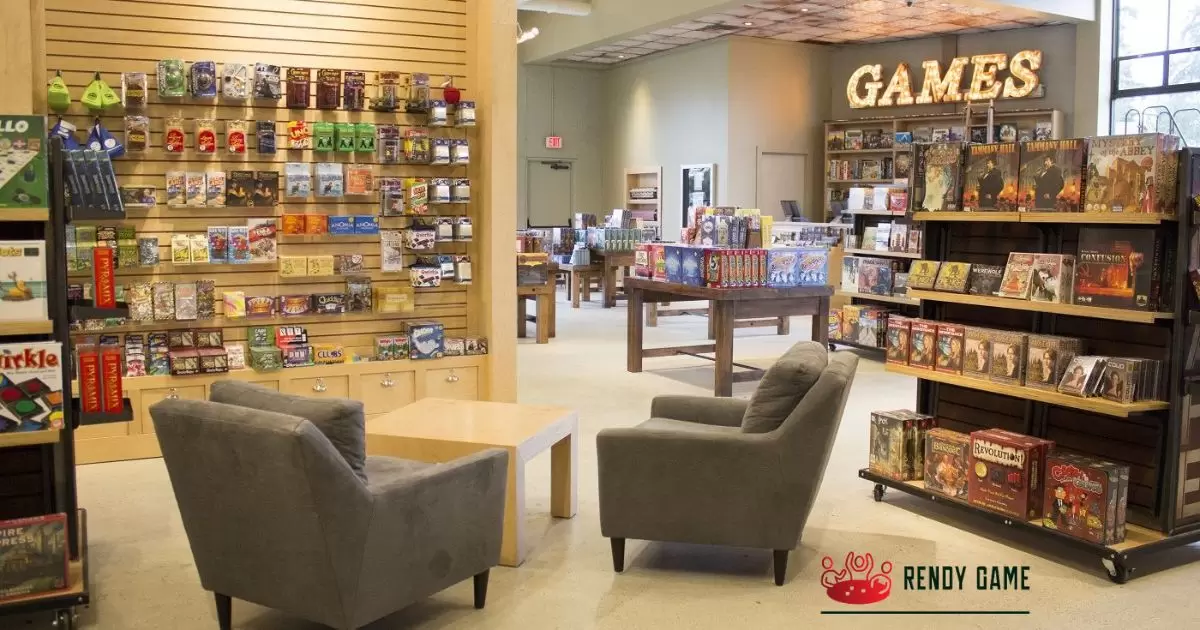A board game store is a specialized retail space dedicated to selling various board games, card games, and tabletop games. These stores often offer a wide range of titles, catering to different ages, interests, and gaming preferences.
Ever wondered about diving into the world of board game retail. How To Start A Board Game Store? involves more than just stocking shelves. It’s about creating an inviting space for gamers, curating an eclectic collection, and understanding the pulse of the gaming community.
Tips and strategies to start a board game store revolve around several key aspects. From conducting thorough market research to choosing the right location, understanding your target audience, and establishing strong connections with distributors and suppliers, the foundation is essential.
Market Research and Analysis
Before venturing into the board game store business, thorough market research is crucial. This involves studying the local gaming community, understanding their preferences, and identifying potential competitors. Surveys, online forums, and local gaming events can provide valuable insights into the types of games in demand and the interests of the target audience.
Analyzing trends, such as the rise in popularity of certain genres or the demand for specific game mechanics, helps in curating a diverse inventory that appeals to a wide range of customers.
Crafting a Business Plan
A well crafted business plan serves as the roadmap for establishing a successful board game store. It outlines the store’s mission, vision, target market, and unique selling propositions. The plan should encompass financial projections, including startup costs, expected revenue, and operational expenses.
It also delineates the marketing strategies, inventory management approach, and plans for customer engagement. A comprehensive business plan not only helps in securing funding from investors or loans but also acts as a guiding document throughout the establishment and growth phases of the business.
Choosing the Ideal Location

Selecting the right location significantly influences the success of a board game store. The ideal spot should be easily accessible to the target demographic, whether it’s near schools, residential areas, or entertainment districts. Foot traffic, visibility, and parking availability are essential factors to consider.
The zoning regulations and lease terms for commercial spaces is crucial in making an informed decision. A location with ample space for gaming tables, events, and a welcoming atmosphere can contribute to creating a vibrant community hub for gamers.
Building Your Inventory
Building an inventory for your board game store involves curating a diverse and engaging collection. Start by researching popular and classic board games across different genres and age groups. Stock up on well-known titles alongside niche and unique games to cater to various customer preferences.
The player count, game length, complexity, and themes when selecting games, ensuring a balanced mix. It’s vital to listen to customer feedback and stay updated on new releases to keep your inventory fresh and enticing.
Establishing Supplier Relationships
Establishing strong relationships with game distributors and suppliers is crucial for maintaining a thriving inventory. Reach out to multiple distributors to explore different options and negotiate favorable terms. Building trust and reliability with suppliers can lead to better pricing, exclusive deals, and early access to new releases.
Maintain open communication channels, fulfill payment obligations on time, and adhere to agreements to foster long-term partnerships. A diverse network of suppliers ensures a steady flow of diverse games, reducing dependency on a single distributor and offering customers a wider selection.
Creating a Welcoming Store Environment
To create a welcoming store environment for your board game shop, focus on layout and ambiance. Arrange your store with ample space for customers to move comfortably between shelves and gaming tables. Incorporate cozy seating areas or demo tables where players can test games before purchasing.
Encouraging community engagement is key. Host regular game nights, tournaments, or themed events to bring gamers together. Consider creating a membership or loyalty program to reward frequent customers and build a sense of belonging.
Marketing and promotion strategies
Marketing and promotion strategies play a crucial role in establishing and growing a board game store. Online presence is paramount in today’s digital age. Beyond the digital realm, traditional marketing methods remain effective.
Hosting launch parties for new game releases or offering demo days in partnership with publishers attract both new and seasoned players. Implementing a loyalty program with rewards for frequent customers incentivizes return visits.
| Marketing Channel | Strategy |
| Social Media | Regular engaging posts |
| Website | User-friendly interface |
| Email Newsletters | Exclusive deals |
| Events | Launch parties, demos |
| Loyalty Programs | Incentivize return visits |
| Local Engagements | Sponsorships, conventions |
Organizing Engaging Events
Organizing engaging events is a cornerstone of a successful board game store. Hosting game nights allows players of all ages and skill levels to come together, fostering a sense of community. These events can range from themed game nights to tournaments, offering a variety of experiences for customers.
By crafting a well-rounded schedule that embraces a variety of events, including engaging learning sessions for new games and competitive play tailored for seasoned enthusiasts, you can effectively cater to a diverse audience.
Consider fostering partnerships with game publishers or collaborating with local gaming groups to bring distinctive experiences to your store. And hey, for an extra twist, why not explore the exciting realm of DIY entertainment and encourage patrons to print their own board game for a personalized touch to their gaming adventures?
Providing Exceptional Customer Service
Exceptional customer service is the heartbeat of a thriving board game store. It starts with knowledgeable staff who are passionate about games and can guide customers effectively. Offering personalized recommendations based on a customer’s preferences and gaming experience fosters trust and keeps them coming back.
Going the extra mile by organizing demo sessions, where customers can try out new games before purchase, adds value to their shopping experience. Listening to customer feedback and continuously improving your store’s offerings based on their input demonstrates a commitment to meeting their needs.
FAQs
What makes a successful board game store?
Success hinges on a diverse inventory catering to various gaming interests, a welcoming space for community building, and a deep understanding of customer preferences and trends.
How important is location when starting a board game store?
Location is crucial; choosing an area with high foot traffic, accessibility, and a community interested in tabletop gaming can significantly impact a store’s success.
How can I engage customers and foster a gaming community?
Organizing regular game nights, tournaments, and events, along with providing a space for gamers to gather and socialize, helps create a vibrant community around your store.
Conclusion
Embarking on the journey to start a board game store opens doors to a world of community, fun, and entrepreneurship. It’s a venture fueled by passion, where every dice roll and card dealt builds connections among players.
As you dive into this vibrant space, it’s not just about the games on the shelves, it’s about creating a haven where gamers gather, friendships flourish, and the love for tabletop adventures thrives. Building a board game store isn’t just a business, it’s about fostering a hub for shared experiences and joyful moments around the table.

